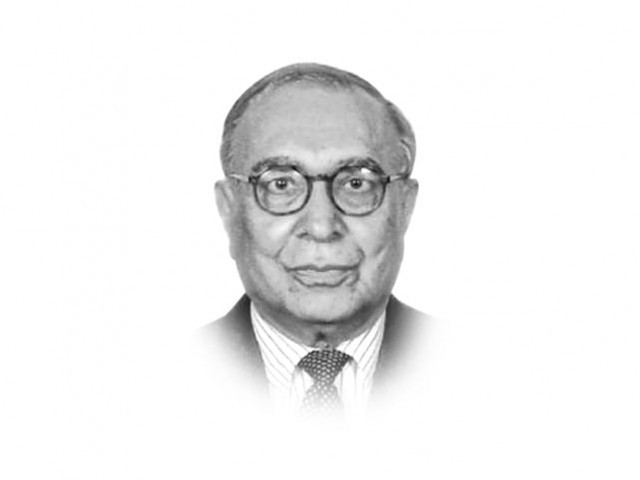Broadening the base
Imran Khan’s success mirrors PPP's under Zulfikar Ali Bhutto, enjoying similar highs, & now similar pit falls.

Sadly, the authenticity of this phenomenon is being questioned by the ruling PPP in more or less the same terms as were employed against the emergence of the PPP in the late 1960s. After Imran Khan’s impressive demonstration of support in Lahore, observers like me argued that it was qualitatively different inasmuch as it brought out the middle class, the youth and women. But the same evening, a particularly pugnacious PPP lady, who wears a smug, superior and often supercilious mask at TV talk shows, rubbished the Lahore gathering as a musical concert; not even a political meeting at all. Imran Khan continues to draw large and exuberant crowds.
The unexpected success of Imran Khan’s new wave public meetings has predictably triggered off a flood of applications for membership from established politicians, including the ‘electables’ enjoying autonomous vote banks. This development mirrors a similar process in the PPP after Zulfikar Ali Bhutto had demonstrated his rapport with the masses. Inevitably, it has raised for the Tehreek-i-Insaf the same problem it once did for the PPP: would this large influx strengthen the pristine purposes of the party or substantially modify them as a trade-off between conceptual orthodoxy and electoral success.
The PPP was launched as a platform for progressive forces. Together with like-minded people from his own class, Bhutto attracted leftist groups of various ideological hues. Once he consolidated his grip on power, the PPP was inundated with traditional politicians, especially from the feudal classes.
Domestically, the party carried out a botched-up nationalisation campaign and then struggled with its negative fallout. Externally, Pakistan stood with Third World leaders with anti-imperialist postures as well as with a ‘Muslim’ constituency inspired by King Faisal of Saudi Arabia. Benazir Bhutto retained the rhetoric but realigned the party with forces of democracy, neo-liberal economics and human rights that prevailed upon the ‘East’ in the Cold War. The Musharraf dictatorship forced her to seek western support, conditional in nature, to make a fresh bid for power. In a conversation in Dubai, not too long before her life was tragically cut short, she shared with me some preliminary ideas on how she would re-synthesise various strands in the new PPP. She had the intellectual calibre and diplomatic skills to carry out this formidable task but her death left the party in the hands of people who do not feel the need to do so. The PPP has already lost its exceptionalism and runs the risk of being derided by the nation as addicted to corruption and as a handmaiden of alien interests.
Imran Khan needs to broaden the base of his party if he wants to bring about fundamental changes in state and society. Many of the newcomers will not only seek his ticket but also a political ethos to which they are accustomed. Zulfikar Ali Bhutto never quite succeeded in balancing clashing tendencies in the PPP. The next few months will show if Imran Khan has in place mechanisms to do so and preserve the party’s core values.
Published in The Express Tribune, November 27th, 2011.













COMMENTS
Comments are moderated and generally will be posted if they are on-topic and not abusive.
For more information, please see our Comments FAQ